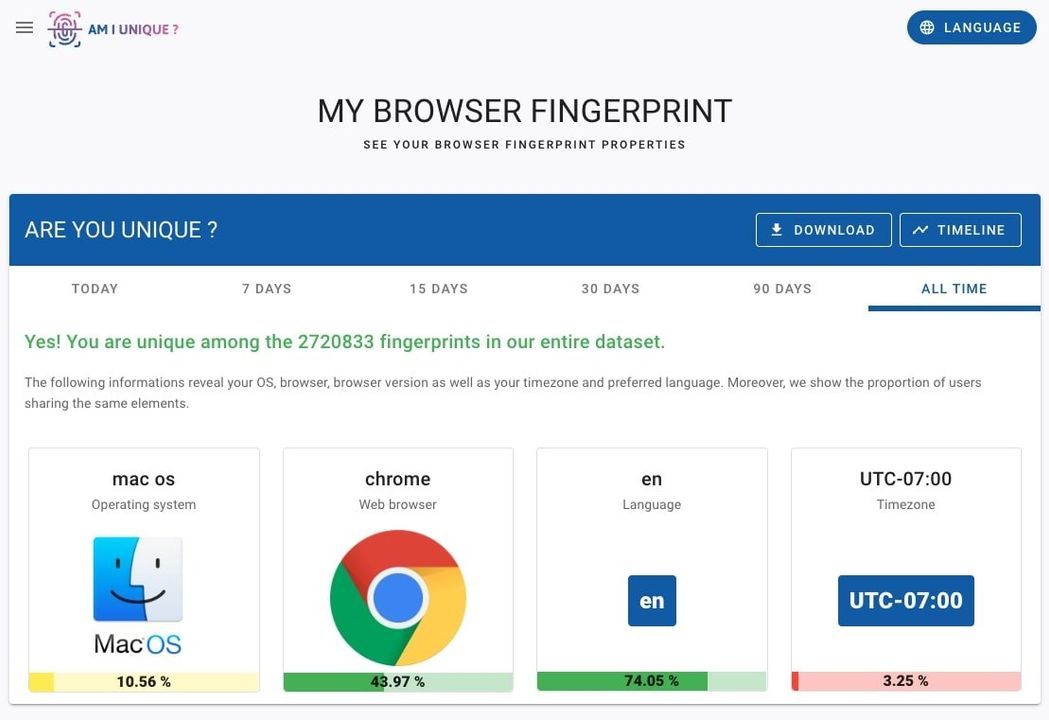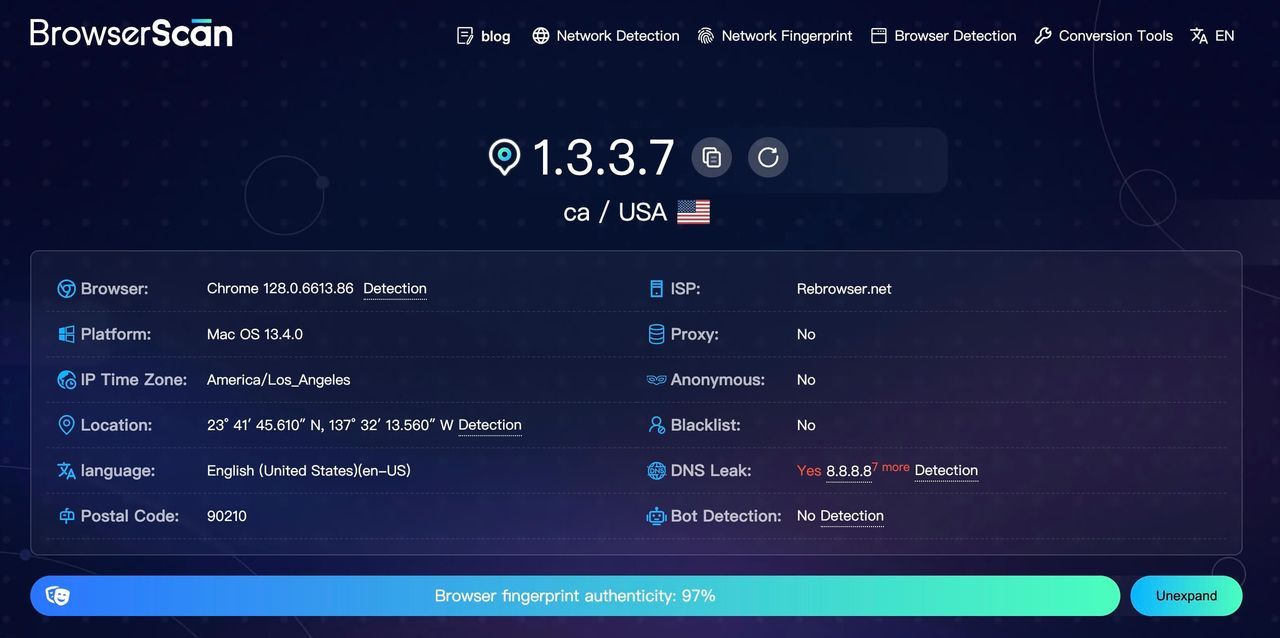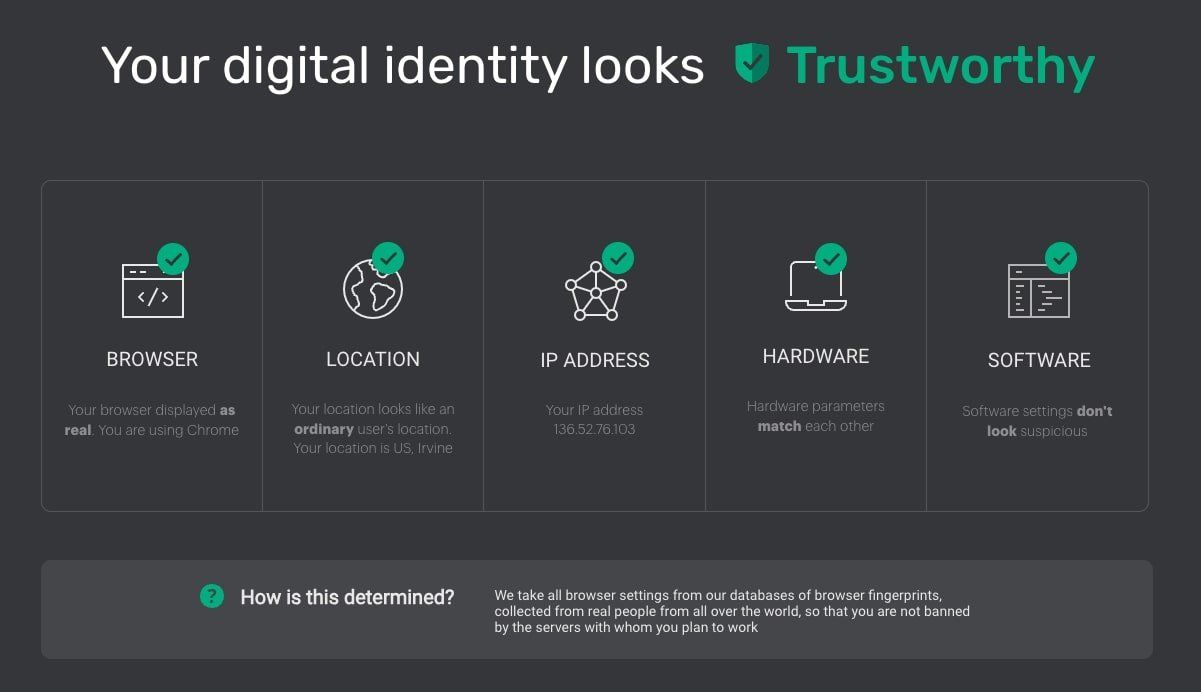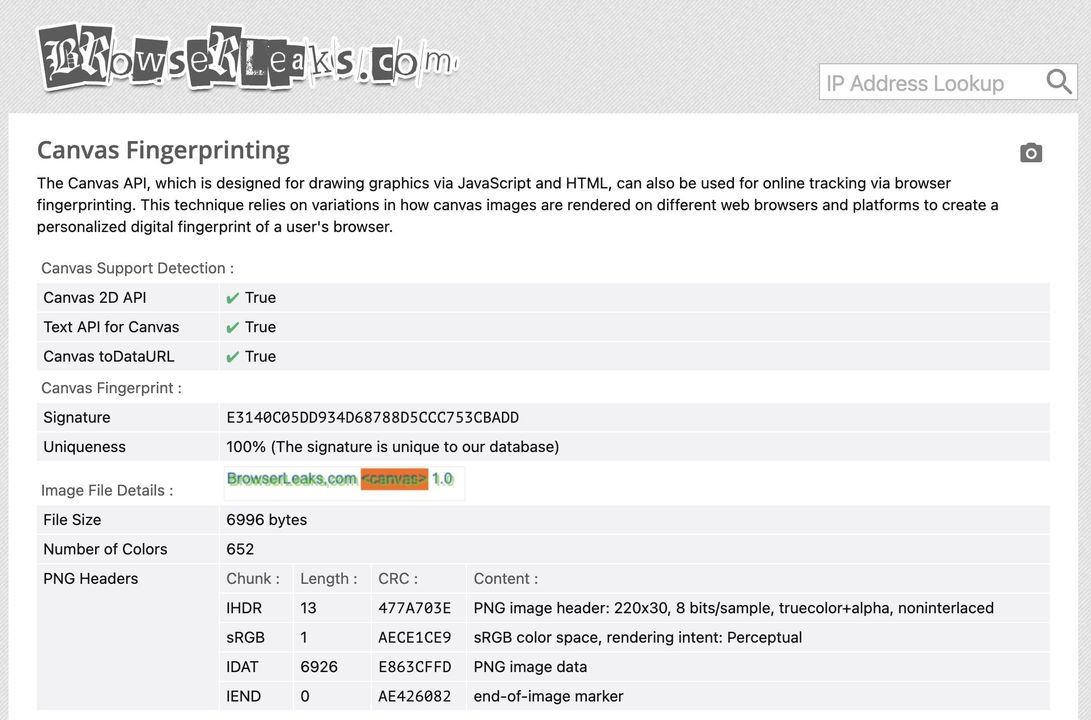CreepJS
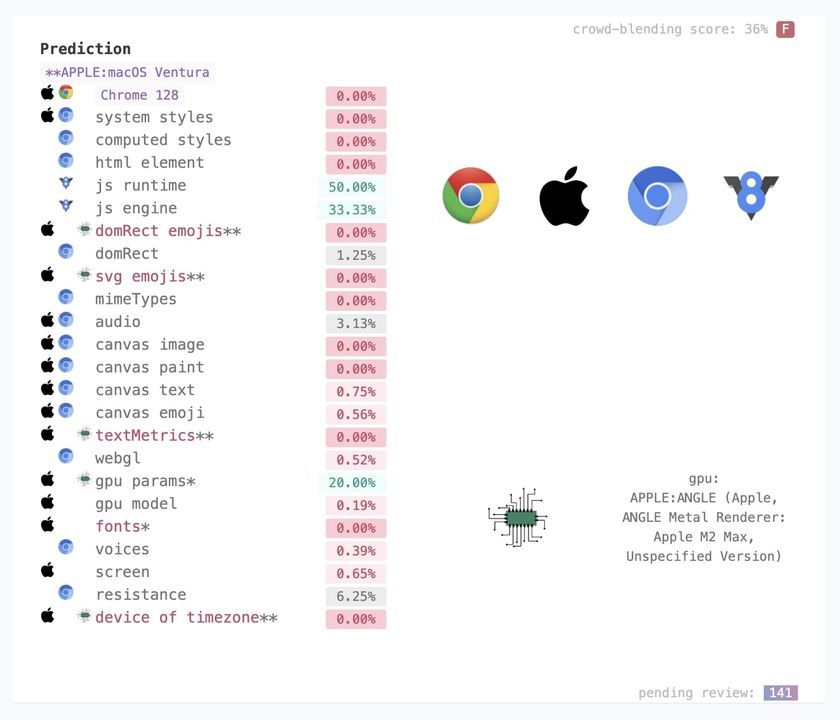
Imagine a tool that knows your browser’s secrets better than you do. Meet CreepJS, a complete open-source fingerprinting solution. It dives deep into your browser, probing for hidden vulnerabilities. CreepJS demonstrates how to create a unique fingerprint in a controlled environment.
Understanding CreepJS: The Complete Open-Source Browser Fingerprinting Solution
CreepJS is a sophisticated fingerprinting tool that probes browser and device data. It is a browser fingerprinting library designed to reveal vulnerabilities.
CreepJS gathers information to create identifiable fingerprints. It collects hardware details of a browser to generate a true fingerprint.
The tool employs JavaScript to probe various browser features. It uses numerous browser APIs to identify unique patterns. CreepJS calculates the entropy of individual users and their behaviors. It probes a wide range of features, like canvas and WebGL. This extensive probing makes it difficult for users to avoid fingerprinting.
It’s important to note that CreepJS might not be fully accurate. It offers an alternative approach to understanding browser security.
CreepJS is exceptionally effective for highlighting potential privacy leaks. It is less suited for providing definitive fingerprints. The fingerprints it creates should be considered exploratory rather than fully accurate.
What is CreepJS?
CreepJS is an open-source, JavaScript-based fingerprinting library. It was created by abrahamjuliot in June 2020. This project has quickly gained popularity, amassing over 1,500 stars on GitHub. CreepJS aims to expose browser vulnerabilities. It gathers information from browsers to identify weaknesses.
Key features of CreepJS:
- Detects prototype lies and API inconsistencies.
- Analyzes browser attributes like WebGL, installed fonts, and screen resolution.
- Generates a unique fingerprint using data points.
- Examines browser privacy settings for potential leaks.
It’s designed to create unique browser fingerprints through these methods. Collect data with CreepJS to create unique identifiers.
Why CreepJS is the Most Complete Solution Available
CreepJS is the most complete open-source fingerprinting solution available. It thoroughly probes various browser attributes, detecting privacy leaks. It uses a wide range of algorithms for precise results.
How CreepJS achieves its accuracy:
- Probes JavaScript tampering and extension codes.
- Collects hardware details and user agent data.
- Uses algorithms for identifying high-entropy APIs.
- Generates true browser fingerprints.
Fingerprinting tools like CreepJS are sophisticated, making it difficult to completely prevent fingerprinting. CreepJS work reveals potential browser vulnerabilities.
However, these probing methods are designed to explore possible vulnerabilities. They do not necessarily reflect common real-world fingerprinting practices. CreepJS serves as a hypothetical benchmark for understanding potential browser leaks. It should not be used as a direct measure of privacy risks.
How CreepJS Works: Algorithms and Techniques for Fingerprinting a Browser
CreepJS is designed to reveal browser vulnerabilities. It uses detailed algorithms to detect fingerprinting risks. CreepJS creates unique identifiers by analyzing browser behaviors. It employs a wide array of probing methods to collect data.
The fingerprinting process targets device and browser attributes. This helps generate a unique identifier for each user.
CreepJS uses prediction API to assess privacy settings. It can expose flaws in several browser configurations. CreepJS from fingerprinting a browser due to its extensive analysis is complex. The results of these probes highlight privacy concerns.
Fingerprinting a browser due to its extensive capabilities offers insights. CreepJS serves as an alternative for understanding browser privacy.
Range of Detecting Algorithms Used by CreepJS
CreepJS uses a wide range of detecting algorithms to fingerprint browsers. It focuses on gathering fingerprint data from multiple browser sources.
Techniques include:
- Canvas fingerprinting: Creates a unique identifier using browser rendering.
- WebGL analysis: Examines how the browser renders graphics.
- Web Audio API fingerprinting: Detects audio behaviors for unique fingerprints.
Data collection methods:
- Entropy calculations of browser attributes.
- Analysis of browser configurations and behaviors.
Exploring Browser Fingerprinting Techniques in CreepJS
Fingerprinting techniques used by CreepJS involve various APIs and settings. CreepJS gathers user agent and hardware details to create fingerprints.
Techniques include:
- Audio fingerprinting: Uses the Web Audio API for detection.
- Installed fonts probing: Identifies fonts to generate unique fingerprints.
- WebGL parameter analysis: Detects discrepancies in browser rendering.
CreepJS’s techniques help create highly precise and reliable fingerprints. This makes it a sophisticated browser fingerprinting tool.
CreepJS Detection: Identifying Privacy Settings and Automation Tools
CreepJS analyzes privacy settings and automation tools in browsers. It identifies how privacy measures affect fingerprinting. CreepJS aims to detect flaws in browser protection methods. It probes browser settings to create accurate fingerprints.
CreepJS calculates a trust score for each privacy setting. This score helps measure the effectiveness of privacy tools. Due to its extensive probing, CreepJS detects hidden vulnerabilities. It can distinguish between normal and automated browser behavior.
CreepJS serves as an alternative for studying privacy settings. It helps researchers understand browser fingerprinting due to various techniques. CreepJS uses collected data to create better privacy insights. Developers can use const browser variables to enhance their analysis.
CreepJS Detection of Browser Automation Tools
CreepJS collects data to identify browser automation tools. It analyzes browser behaviors and configurations to detect bot-like activities.
CreepJS identifies automation tools by:
- Differentiating between human and automated behaviors.
- Probing JavaScript interactions for inconsistencies.
- Analyzing user interactions to confirm browser automation.
However, it is challenging to completely prevent CreepJS from fingerprinting. It continuously adapts to identify new browser environments.
Analyzing Browser Privacy Settings Using CreepJS
CreepJS probes browser configurations to identify privacy settings. It analyzes features such as WebGL parameters and browser APIs.
Steps CreepJS uses to analyze privacy:
- Probes browser settings to identify privacy configurations.
- Collects data points to evaluate browser privacy measures.
- Compares results to detect discrepancies in browser privacy.
Using browser privacy add-ons might reduce fingerprinting but won’t eliminate it entirely. Note that these steps might impact the functionality of some sites.
Practical Implications of CreepJS: A Research Tool for Fingerprinting and Beyond
CreepJS is valuable for privacy researchers, security professionals, and developers. It helps understand theoretical limits of fingerprinting. However, its findings should be interpreted as exploratory insights into possible browser leaks. Users should be cautious in applying its results to real-world scenarios.
| Application | Purpose | Benefits |
|---|---|---|
| Privacy Research | Tests browser vulnerabilities | Reveals privacy risks in settings |
| Browser Development | Improves browser configurations | Enhances privacy protections |
| Security Analysis | Detects flaws in privacy measures | Increases security awareness |
| Automation Detection | Identifies automated browsing patterns | Helps prevent bot interactions |
| Fingerprint Analysis | Assesses accuracy of fingerprints | Measures effectiveness of privacy tools |
| Extension Evaluation | Reviews browser add-ons for leaks | Strengthens extension security |
CreepJS as an Alternative Fingerprinting Solution for Privacy Researchers
CreepJS is a sophisticated browser fingerprinting research tool. It helps privacy researchers identify theoretical browser leaks.
Benefits for researchers:
- Provides alternative fingerprinting solutions to test browser vulnerabilities.
- Analyzes data from web browsers to enhance privacy understanding.
- Offers insights into various browser attributes and their fingerprinting risks.
It serves as a reliable research tool for privacy analysis.
CreepJS in Browser Security and Web Development
Developers can use CreepJS to improve browser privacy measures. It offers insights into how web browsers interact with fingerprinting tools.
Use cases for developers:
- Identifies potential browser weaknesses.
- Tests privacy features and their impact on browser security.
- Optimizes websites for better privacy compliance.
CreepJS helps enhance understanding of browser vulnerabilities. It’s useful for exploring browser configurations and improving user privacy.
Conclusion
CreepJS contributes to browser fingerprinting research. It is open-source and has strong community support. The tool reveals potential privacy risks in browsers. However, users must view it as a research tool. Its methods are complex and not common in real scenarios. CreepJS helps explore possible vulnerabilities, but it cannot assess privacy alone. It reminds users of online privacy's challenges. CreepJS invites collaboration for improved privacy solutions.
